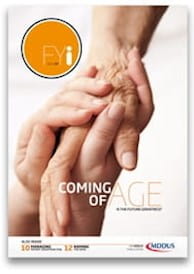THE STAGE is set and the lawyers, solemn in their black gowns, prepare to question the first witness at a fatal accident inquiry (FAI). It is a troubling case – a young man said to be on methadone was brought to A&E with a head injury. He was in police custody, it was late at night and it fell to junior doctor Dr Wilson to treat him. She examined the patient and prescribed a large dose of methadone and he appeared to settle. But just a few hours later he was dead.
Questions were asked about her treatment of the patient, known as John Doe, and now – almost two years later – she has been called to give evidence at the FAI. But with only her memory and limited clinical notes to rely on, her appearance before the sheriff– and before the deceased’s family – looks set to be a stressful experience.
However this is not a court room but a lecture theatre with an audience of almost 250 final year Glasgow University medical students. They have come to watch this fictional scenario played out with actors and real lawyers in order to experience first-hand exactly how an FAI works and the type of questioning they might face should they ever find themselves called to give evidence.
Mock FAIs are scripted proceedings designed to give students valuable insights into the workings of the court. In this case MDDUS solicitors David Holmes and Lindsey McGregor take the roles of sheriff and procurator fiscal while Duncan Mawby, a solicitor from Edinburgh firm Shepherd and Wedderburn, assumes the role of Dr Wilson’s defence agent. Professional actors take the roles of John Doe’s brother and Dr Wilson.
Proceedings open with a general introduction to fatal accident inquiries before John Doe’s brother takes the stand. Clearly angry, he contradicts claims apparently made by Dr Wilson surrounding John Doe’s treatment. He is adamant his brother was not on methadone and should never have been given such a large dose without confirmation from his GP.
A nervous looking Dr Wilson then takes the stand to face a grilling from the fiscal who asks tough questions about her poor note-keeping, vague clinical instructions and her decision to prescribe methadone in the absence of more detailed medical information from John Doe’s GP. Her defence appears to focus on being too busy to write full notes and being unable to confirm the methadone prescription because it was late at night. She made several phone calls to try to confirm his methadone prescription, she says, but was too busy to note these efforts in the patient’s records.
It is a scenario that has no doubt played out in court rooms across the UK and there are useful lessons for the gathered audience to learn from the team of MDDUS experts. Each audience member has been given an information pack to guide them through the FAI. It contains copies of the ‘clinical notes’ relating to John Doe’s care and one trainee doctor comments that he would not like to be in Dr Wilson’s shoes, giving evidence based only on these sparse notes.
Questions at the end of the FAI raise concerns about giving evidence. There are fears that evidence given by doctors at an FAI (or coroner’s inquest in England and Wales) could incriminate them, or that any criticism of a doctor’s actions could spark GMC disciplinary proceedings. While this prospect cannot be entirely ruled out, it’s made clear that in a real case MDDUS advisory and legal teams would be on hand to offer support, advice and, where necessary, legal representation to members.
For most newly qualified doctors starting out on their careers, the idea of facing difficult questions about their professional conduct in an FAI or CI may seem a distant prospect.
But involvement in such proceedings is one of the most common reasons that junior doctors contact MDDUS for advice and support. Being called to appear in a sheriff or crown court to be questioned about your involvement in the care of a patient who died is something few doctors relish. Crown indemnity will not provide individual legal support in an FAI or CI where the interests of a particular doctor and their employer may diverge – that’s why it is so important for junior doctors (and doctors in general) to have appropriate indemnity cover.
MDDUS provides its members with access to expert medico-legal advice and legal representation where appropriate to help them cope with these stressful situations.
MDDUS has organised and run mock FAIs as educational events for Scottish trainee doctors for several years and is now looking to expand the service by organising mock FAIs and coroner’s inquests for the benefit of medical students across the UK.
To find out about MDDUS hosting a mock FAI or CI in your medical school, contact Karen Walsh on kwalsh@mddus.com
Joanne Curran is associate editor of FYi
This page was correct at the time of publication. Any guidance is intended as general guidance for members only. If you are a member and need specific advice relating to your own circumstances, please contact one of our advisers.
Read more from this issue of FYi

Save this article
Save this article to a list of favourite articles which members can access in their account.
Save to library
